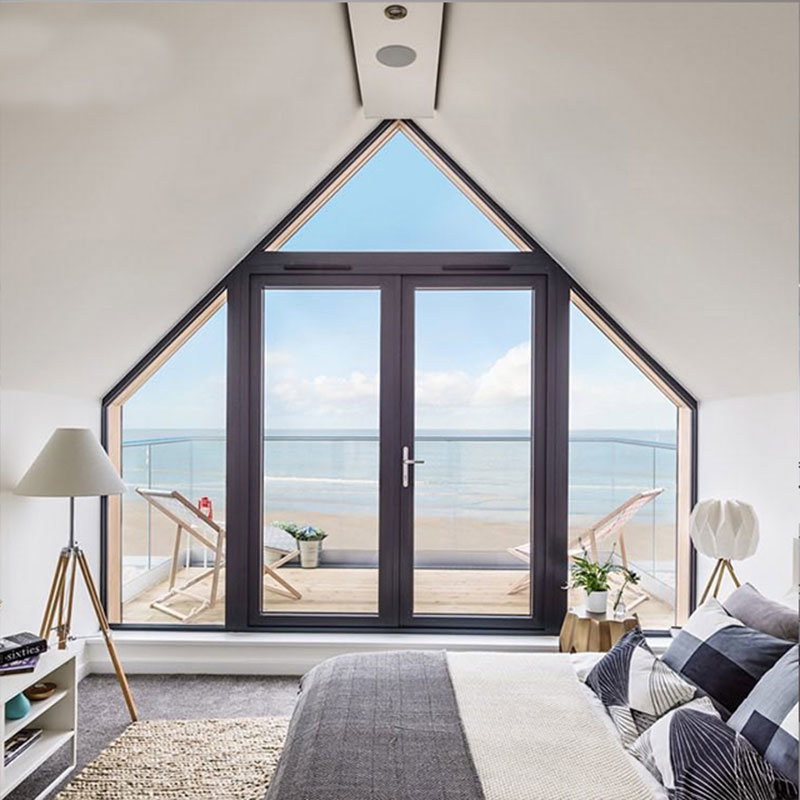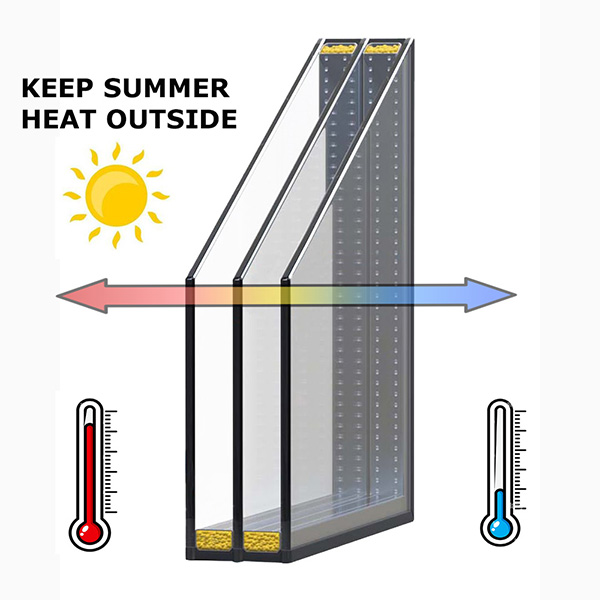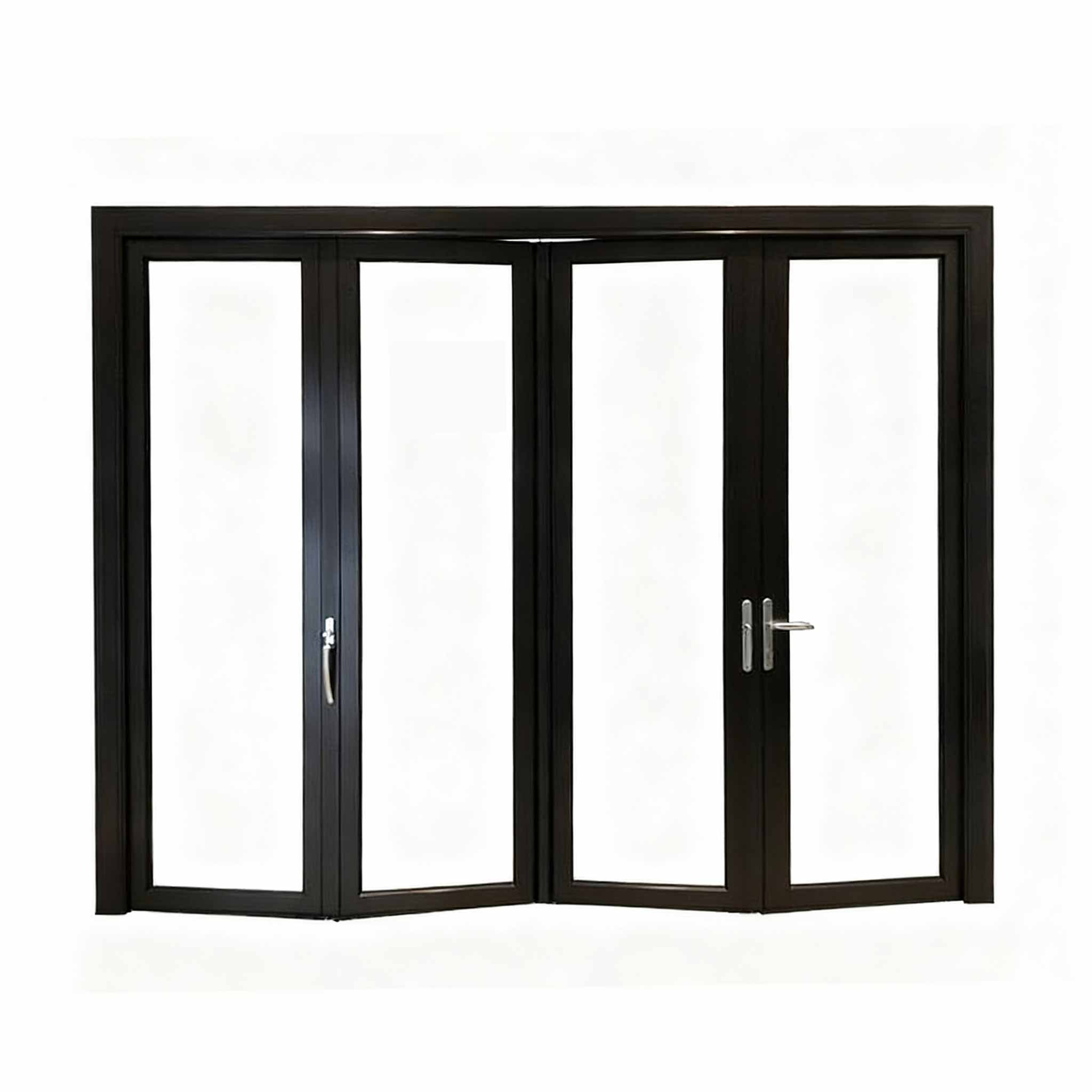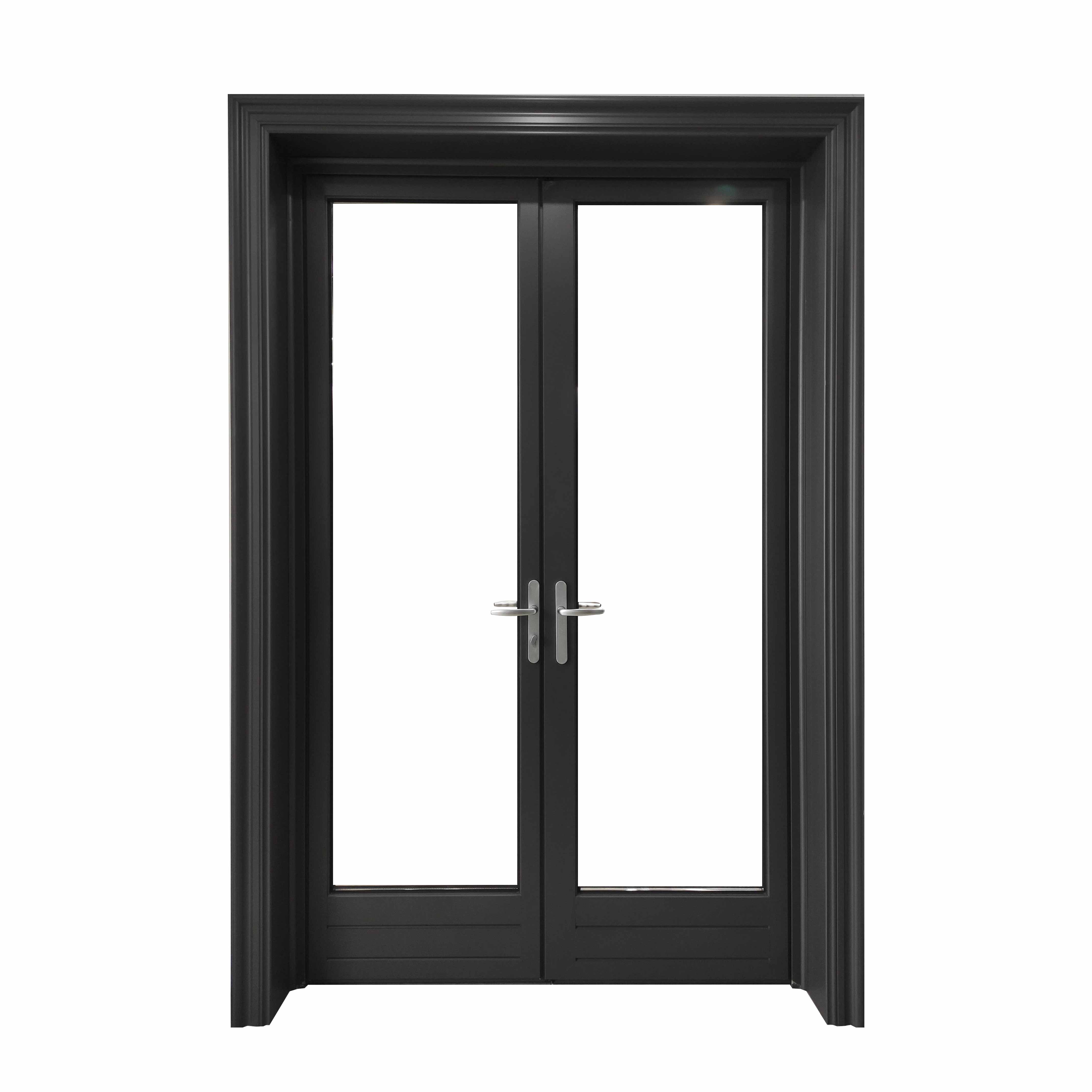Aluminum doors are known for their sleek design, durability, and resistance to corrosion, making them a popular choice in both residential and commercial settings. However, a common question arises regarding their behavior in extreme temperatures: does an aluminum door expand when exposed to heat, and if so, does this lead to any deformation? This article will explore the thermal properties of aluminum and explain why solid aluminium doors, aluminum clad doors, and other aluminum variants don't warp or deform even in high-temperature conditions.
1. Thermal Expansion in Aluminum Doors
Like all metals, aluminum expands when exposed to heat. This is a natural process where the atoms vibrate more intensely as the temperature rises, causing the material to slightly increase in size. This expansion, however, is uniform and predictable, which makes it manageable in the context of door engineering.
For solid aluminium doors, external aluminium doors, or even aluminum lanai doors that are exposed to sunlight, the thermal expansion that occurs is minimal and typically does not affect the door's performance. Manufacturers design these doors with precision to allow for any slight movements that might result from temperature changes.
While the thermal expansion coefficient of aluminum is higher than that of some other materials, such as steel, it remains within tolerable limits. This means that the expansion caused by heat does not compromise the structural integrity or operation of aluminum clad doors, aluminum interior doors, or other aluminum-based designs.

2. Why Aluminum Doors Don't Deform with Heat
Even though aluminum does expand slightly with heat, it does not lead to permanent deformation. This is an important distinction because expansion is a temporary reaction to temperature changes, whereas deformation suggests lasting damage or warping. Here's why external aluminium doors, solid aluminium doors, and other aluminum doors remain resilient:
Engineered for Thermal Movement: Aluminum doors are designed with thermal expansion in mind. Gaps between the door and the frame, as well as the materials used in weatherproofing, allow for the small amount of movement that occurs during heating and cooling. This ensures that aluminum lanai doors, aluminum interior doors, and aluminum clad doors remain functional without the risk of becoming misaligned or stuck.
Uniform Expansion: Aluminum expands evenly, unlike materials that may bend or warp due to uneven expansion. This uniformity ensures that solid aluminium doors or external aluminium doors maintain their shape even under high heat. Because the expansion occurs in all directions equally, the door does not experience any unwanted distortion.
Thermal Break Technology: Many aluminum clad doors and other aluminum products incorporate thermal breaks. These are insulating materials placed between the inner and outer sections of the door, reducing the amount of heat transferred between the two surfaces. This not only improves energy efficiency but also minimizes the impact of thermal expansion, ensuring that the door doesn't warp or deform.
Aluminum's Material Stability: One of aluminum's greatest properties is its stability. Even though it may expand slightly when heated, it contracts back to its original dimensions once the temperature decreases. This characteristic prevents long-term deformation, which is why solid aluminium doors and aluminum interior doors are so reliable in environments with fluctuating temperatures.

3. Best Practices for High-Heat Conditions
While aluminum lanai doors, aluminum interior doors, and external aluminium doors are designed to handle temperature changes without deformation, certain practices can help ensure their longevity and optimal performance in high-heat environments.
Use Insulation: Insulation is key for reducing the impact of external heat on external aluminium doors or aluminum lanai doors that are frequently exposed to direct sunlight. Proper insulation prevents excessive heat from reaching the door, reducing the overall thermal expansion. Weatherstripping and thermal breaks built into these doors also aid in limiting temperature fluctuations.
Protective Coatings: Many solid aluminium doors and aluminum clad doors come with protective coatings that not only enhance their appearance but also shield the surface from UV rays and extreme temperatures. These coatings help reflect heat, minimizing the extent to which the door expands.
Regular Maintenance: Even though aluminum interior doors or external aluminium doors are low-maintenance, regular checks on the door's hinges, frame alignment, and weatherstripping ensure that it continues to function smoothly despite exposure to heat. Inspecting and cleaning these components will help reduce the risk of long-term wear and tear.
Consider Sun Protection: For doors that are exposed to constant sunlight, such as aluminum lanai doors, installing an awning or sunshade can greatly reduce the direct heat exposure. This not only protects the door's surface but also prevents the frame and seals from deteriorating prematurely.
By following these best practices, you can ensure that your aluminum doors, whether they are aluminum interior doors, solid aluminium doors, or aluminum lanai doors, remain in peak condition, even in environments that experience extreme heat.
Conclusion: Aluminum Doors Don't Deform Due to Heat
In conclusion, while solid aluminium doors and aluminum clad doors may experience slight thermal expansion when exposed to heat, this does not lead to warping or deformation. The design and engineering of modern aluminum doors account for these minor movements, ensuring that the door remains functional and visually intact, even in extreme temperature conditions.
The uniform expansion, the use of thermal breaks, and the overall stability of aluminum as a material ensure that your aluminum lanai doors, aluminum interior doors, and external aluminium doors will not suffer from heat-related issues. Whether in residential or commercial settings, aluminum doors are built to withstand environmental challenges without compromising their shape or performance.


